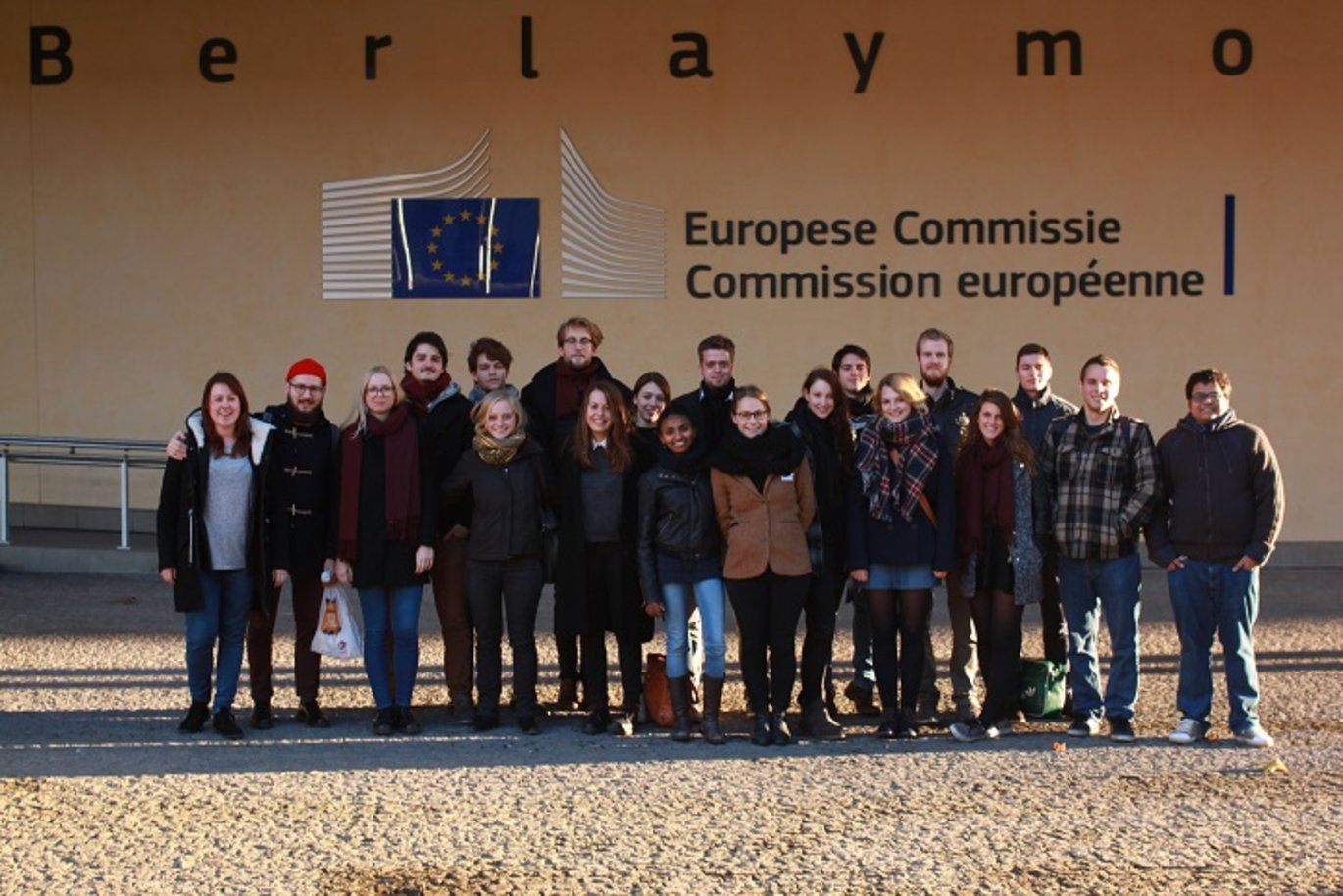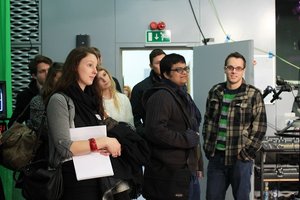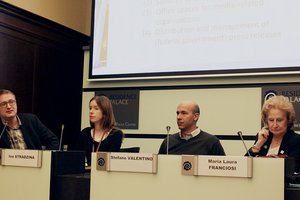Erasmus Mundus students visit the European Commission
Students from the University of Amsterdam report back on their field trip to Brussels as part of the Media and Politics specialism.

Each year in November Erasmus Mundus students make their way from the beautiful city of Amsterdam to the European capital, Brussels, with the mission to see with their own eyes what they have read about in research papers on the European Commission. And this year the 2014/15 Erasmus Mundus group of the ‘Media and Politics’ specialism track at the University of Amsterdam started this journey at dawn on 7 November with the hope of making it to Brussels by nine in the morning.
On schedule, the group of 18 students from 12 different countries arrived at the graceful European Commission building to hear all the nitty-gritty details of how this giant institution works, this time from an insider perspective at the Commission. A long but interesting presentation, followed by discussion, took place. Most of us were reminded of the ‘Communicating Europe’ course we had taken. It was indeed a summary of our eight weeks class in an hour and a half.

The visit next took us to the newsroom and studio of Europe by Satellite (EbS). The existence of this satellite TV station came as a surprise to many of us, though the station has been rendering its services for decades. Even though its reputation barely goes further than the European Quarter of the city, the news organization provides TV channels and journalists with all kinds of information free of charge and without copyright. On top of that, their well-equipped TV studio is available for free for those interested in holding interviews on European Union matters.
As our group comprised young journalists, many of us wanted to physically witness the midday briefing at the EC press room, which we had heard a lot about. For some this experience gave the opportunity to see and hear what it is like working as correspondents at the EC. To our pro-EU despair, Luxemburg’s tax leaks, the controversial case that might harm Jean-Claude Juncker’s reputation, was the topic dominating the press briefing of the day.
After attending the midday briefing, one of the students, Ivo Bosilkov, said: ‘Attending the 12:00 press conference was an experience that I will never forget. After that I started imagining what it would be like to work as a correspondent.’
At the end, there was an experience that gave most of the participants mixed feelings: a meeting with EU correspondents at the Residence Palace, home to the European Journalism Center. We were joined by six EU correspondents from five European countries who discussed the challenges of working as a journalist in Brussels.

Maria-Laura Franciosi, President of Journalists At Your Service (J@YS), a joint initiative of the European Journalism Center (EJC) and other local and European press associations, who has been reporting on European Affairs for the past 21 years, talked about the rewarding nature of the profession that helped her carry on with the job for this long while. Stefano Valentino, an Italian Brussels-based freelancer, saw the experience as ‘a great way to get into starting your own business’. Stefano recently started Mobile Reporter, a crowd-powered investigative news network.
The challenges of reporting EU news from a European, not primarily national, perspective, how the conflict in Ukraine changed EU news reporting to a certain extent, issues in relation to EU scepticism, and the changing nature of journalism were among the topics discussed in the two-hour meeting with the correspondents.
Expressing her mixed feelings at the end of the conversation with the correspondents, one of the students, Anne Odendahl, said: ‘Unfortunately the discussion discouraged me from working as a correspondent in Brussels, even though the work still seems super interesting as we have seen in the midday briefing, but the whole situation is too insecure for me personally. But I very much appreciated the honest and comprehensive answers by the journalists. Overall our visit was insightful and an addition to our study.’
Text: Daniel Szabó and Emnet Assefa
Photos: Laura Myllymäki